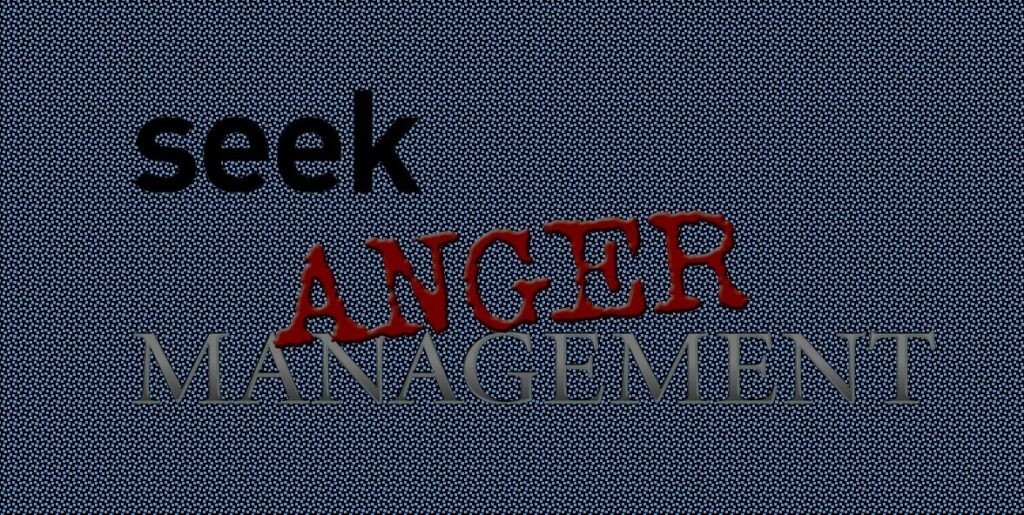
Temperament Choleric is more likely to be angry outbursts, others are often uncomfortable around them.
Temperament Melancholic is more likely to be calm and quiet on the outside, but they are often angry and resentful. They tend to keep those angry thoughts to themselves until they build up, and eventually, the anger blows up.
Temperament Phlegmatic often hurt others or tease others who annoy them. Often they use their joking and wittiness as a tool to get others upset and angry.
Temperament Sanguine is more likely to be undisciplined, rude and prone to with uncontrolled anger; after they have exploded, they forget all about it.
Temperament Supine is more likely to be aggressive and defensive, weak willpower or a tendency to feel powerless; eventually the anger bursts into rage.
Thoughts are creative power, or a driving force that leads the creative power to act. Anger exists in the mind and is a direct result of your thoughts. An event does not make you angry, but your interpretation of the event, and how you think and feel can lead to anger. We cannot remain only in thought, neglecting personal action. We cannot be limited to thinking, but our personal action must supplement our thought. However, it is necessary to have a conclusion in the situation before acting out of the feeling of anger.
Awareness provides control over our actions.
Step 1- Admit you are angry. Recognizing that you are angry is the first step in dealing with it. Some people find it difficult to admit they are angry, perhaps because they view their feelings as inappropriate or not valid. These people may deny their feelings, therefore choosing not to deal with them.
Step 2- Identify the source of the anger. Realizing what is causing you to feel angry is important in dealing with the real problem. Often the real problem can be confused with other issues or other emotions. In example 1, is Mary truly angry with her husband, or is she angry because her illness is interfering in her daily routine? If Mary is misdirecting her anger at her husband rather than at the true source, the problem becomes compounded.
Step 3 – Feeling angry? Why? Recognizing the reason for your feelings of anger is an important step in dealing with the anger. After analyzing the reasons, you will decide in your mind if the anger is reasonable or justifiable. If you decide the anger is unnecessary, you can diffuse.
Controlling Anger There are techniques that can help you control your thoughts, and in turn, control your anger.
• Imagery – Get rid of intense, angry feelings by letting your imagination diffuse some of the feelings. Allow yourself to imagine strangling the person who has made you feel angry, without actually carrying out the action. Imagery is a safer way for you to vent angry feelings.
• Thought stopping – Do not allow the thoughts that are making you angry to continue. Shut down those thoughts by switching your concentration to something you find pleasant and enjoyable. By diverting your attention, you help the anger to dissipate.
• Change your expectations – People often get angry when their expectations are not met. Modifying your expectations can help you cope with anger. If you can afford more flexibility, there will be fewer chances for a situation to lead to anger.
• Develop more understanding – Being aware of why a person behaves a certain way or why a person is saying something will help promote understanding. Try putting yourself in the other person’s shoes and viewing a situation from their perspective.
Physiological responses occur in the body when you become angry. Blood pressure increases, breathing and heart rate become more rapid, and muscles become tense. Anger, which lasts a long time can physically damage the body.
Anger is a form of negative energy that must be released, and it is best to follow steps that help release it constructively. Anger need not be negative. If anger is controlled, it can be wisely used to communicate and negotiate a resolution.
Modern Psychology Anger is viewed as a natural and healthy response that has evolved to enable us to deal with threats. Three types of anger are recognized by psychologists.
The first form of anger, named “hasty and sudden anger,” is connected to the impulse for self-preservation. It is shared between humans and animals and occurs when one is tormented or trapped.
The second type of anger is named “settled and deliberate anger.” It is a reaction to perceived deliberate harm doing or unfair treatment by others. These two forms of anger are episodic.
The third type of anger is, however, dispositional and is related more to character traits than to instincts or cognitions. “Irritability, sullenness and churlishness” are examples of the last form of anger.
Anger can potentially mobilize psychological resources and boost determination for the correction of wrong behaviors, promotion of social justice, communication of negative sentiment and redress of grievances. It can also facilitate patience. On the other hand, anger can be destructive when it does not find its appropriate outlet in expression. Anger, in its strong form, impairs one’s ability to process information and to exert cognitive control over one’s own behavior. An angry person may lose his/her objectivity, empathy, prudence or thoughtfulness and may cause harm to others There is a sharp distinction between anger and aggression (verbal or physical, direct or indirect) even though they mutually influence each other. While anger can activate aggression or increase its probability or intensity, it is neither a necessary nor a sufficient outlet for anger.
Look for anger management classes or online Therapy or a local Licensed Therapist to help you with your anger issues, self control and stress. Ask for help, you can’t concentrate what others will may think of you. “Science agrees you should stop being afraid to ask for help“

Copy right © 2022 Author Maria Pinto Barbosa, PhD
Director of ACCEL Educational Leadership Certified School Board of Education PHD-Doctor of Philosophy in Clinical Counseling Pastor Christian Minister Clergy Bachelor of Theology in Pastoral leadership Certified Medium course EETAD Theology of Assemblies of God, Cognitive Holistic, Domestic Violence, Certified on Brief Strategic family Therapy, and others
Discover more from Dr Maria Barbosa
Subscribe to get the latest posts sent to your email.






